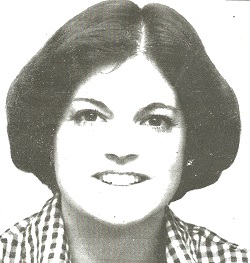A Pained Life: Who Benefits From the Opioid Crisis?
/By Carol Levy, PNN Columnist
For the first time in almost 40 years, I have to fight to get my codeine prescription filled.
I understand intellectually what so many pain patients have said about the frustration, upset and upheaval they experience when a pharmacist refuses to fill their prescription or insurance refuses to pay for it. Or harder still, what they go through having their opioid medications cut down or stopped completely.
But I did not understand the emotional side of it until it happened to me.
The insurance company refused to pay for my codeine prescription. They had no problem filling it for the last many, many years but suddenly they need "authorization" from the doctor. How does that make sense? Writing the prescription was authorizing. Why do they need to add a second permission?
It is now over three weeks. The pharmacist tells me they have contacted the doctor's office three times: "You need to call them and find out why they haven't responded."
When I call the office, they tell me the pharmacy never sent over the forms they need.
So I call the pharmacy back. They recite a fax number for the doctor’s office. It is not the right number. I give them the number the doctor's office just gave me. “We'll try it again right now,” she says.
I keep my fingers crossed and hope I don't run out of pills before it is resolved — if it is resolved.
The pharmacy clerk and I talked the day the prescription was refused by the insurance company. I was venting my frustration over not being able to get the prescription filled, especially because it is the same prescription I have had for years, one that was always covered by my insurance.
To my surprise she says: "It is not just narcotics. Many insurance companies are refusing to cover or making unwarranted demands, requiring many more hoops to jump through. They have refused to cover certain creams and hormones, other prescriptions, non-narcotics that are routinely given and, until now, paid for by the insurance companies."
This is appalling. And makes no sense.
But then I start thinking about it and was struck by a thought: Yes, there is an opioid crisis. And we’ve all heard the reasons they blamed patients for the “crisis.” But I think there may be another factor at play: the profit margin.
After all, if we pay insurance premiums but they refuse to pay for our medication -- forcing some folks to pay cash rather than wait for all the rigamarole to be completed -- then the insurance company comes out way ahead. They get our monthly fees and work to make sure we get as little as possible in return.
I hope I am merely being paranoid. But somehow, I doubt it.
Carol Jay Levy has lived with trigeminal neuralgia, a chronic facial pain disorder, for over 30 years. She is the author of “A Pained Life, A Chronic Pain Journey.”
Carol is the moderator of the Facebook support group “Women in Pain Awareness.” Her blog “The Pained Life” can be found here.
The information in this column should not be considered as professional medical advice, diagnosis or treatment. It is for informational purposes only and represent the author’s opinions alone. It does not inherently express or reflect the views, opinions and/or positions of Pain News Network.





